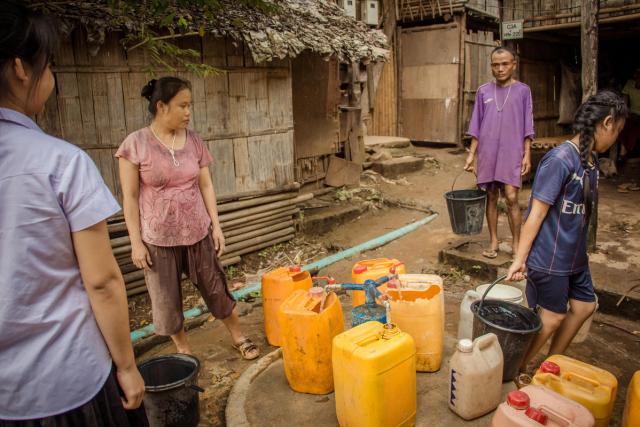Asia Resilience Monitoring, Evaluation and Learning (MEL) Workshop

The Asia Resilience Monitoring, Evaluation and Learning (MEL) Workshop, supported by the USAID Center for Resilience (C4R) through the Resilience Evaluation, Analysis and Learning (REAL) Award, was held in Bangkok, Thailand on July 11th to July 14th, 2017 to provide practical M&E training to participants and facilitate exchange of context-specific learning among USAID staff, implementing agencies and technical specialists in the field of resilience analysis, with a focus on the Asia region. Increasingly, practitioners and researchers recognize the need to better integrate resilience measurement and analysis with programs and policy decision making. This workshop contributed to global efforts to strengthen capacities to use resilience data to inform and improve programs and adaptively manage development and emergency activities.
The Asia Resilience Monitoring, Evaluation, and Learning (MEL) Workshop is designed to:
- Provide brief review of/refresher on basic resilience measurement “boot camp” events held in Cambodia and Philippines;
- Review and discuss findings from recent resilience analysis of FFP programs;
- Review and discuss findings from recent analysis of resilience and poverty dynamics;
- Review ongoing learning from resilience measurement in urban contexts: what we know and what we need to know;
- Discuss opportunities for and means of informing policy and programming related to USAID’s Collaborating, Learning and Adapting (CLA) agenda for Asia;
- Identify and prioritize existing knowledge gaps and opportunities to address these gaps.
Agenda and Manuals Provided to participants included:
The workshop will be structured around a series of modules as follows:
Day 1: July 11th
Session 1.1: Review / Refresh of Resilience M&E Skills Covered in Previous Training Events
Resilience Measurement Principles and Framework
Session 1.2: Review Resilience Measurement Principles to Guide Programming Decisions
Analytical framework
Session 1.3: Measurement Deep Dive: Findings from Recent Resilience Analysis in Asia
Key Findings from Resilience Studies: Nepal
Session 1.4: Measurement Deep Dive: Findings from Recent Resilience Analysis in Asia
Key Findings from Resilience Studies: Bangladesh
USAID/BANGLADESH COMPREHENSIVE RISK AND RESILIENCE ASSESSMENT
Day 2: July 12th
Session 2.1: Findings and Lessons Learned - STRESS 101 Refresher
Strategic Resilience Assessments: Applying a Resilience Lens to Development Strategies & Programs
Session 2.2: Findings and Lessons Learned (Cont.)
Bangladesh Resilience Assessment: Findings and Lessons Learned
Session 2.3: Using Secondary Data for Resilience Analysis
Resilience Recurrent Monitoring Surveys: An Overview
SHOUHARDO II : Analysis Using a Resilience Lens
Session 2.4: Using Recurrent Monitoring Surveys (RMS) in Resilience Projects
Recurrent Monitoring Surveys (RMS) in resilience projects: CARE SHOUHARDO III - Bangladesh
Session 2.5: Activity-Level Monitoring and Evaluation
Resilience Project-Level M&E: Common Challenges and Solutions
Day 3: July 13th
Session 3.1: Ensuring Escapes from Poverty
Resilience and Sustainable Poverty Escapes
Session 3.2: Overview of Resilience Analysis in Urban Contexts
Measuring Urban Resilience in Asian Contexts
Session 3.3: Overview of Resilience Analysis in Urban Contexts (cont.)
Urban Resilience Measurement: An Approach Guide and Training Curriculum
Session 3.4: Using Resilience Data/Evidence
Collaborating, Learning and Adapting (CLA) & Shock Responsive Programming
Session 3.5: Frontiers and Future Challenges for Resilience Analysis
Frontiers and Future Pathways for Resilience Analysis
Day 4: July 14th
Session 4.1 Regional Resilience in Asia: Comments from the USAID Resilience Coordinator/Director of the Center for Resilience Greg Collins
Facilitated Discussion identifying key takeaways and next steps
Session 4.2 Regional Resilience in Asia/Southeast Asia: Wrap Up
Facilitated Discussion identifying key takeaways and next steps
Closing remarks